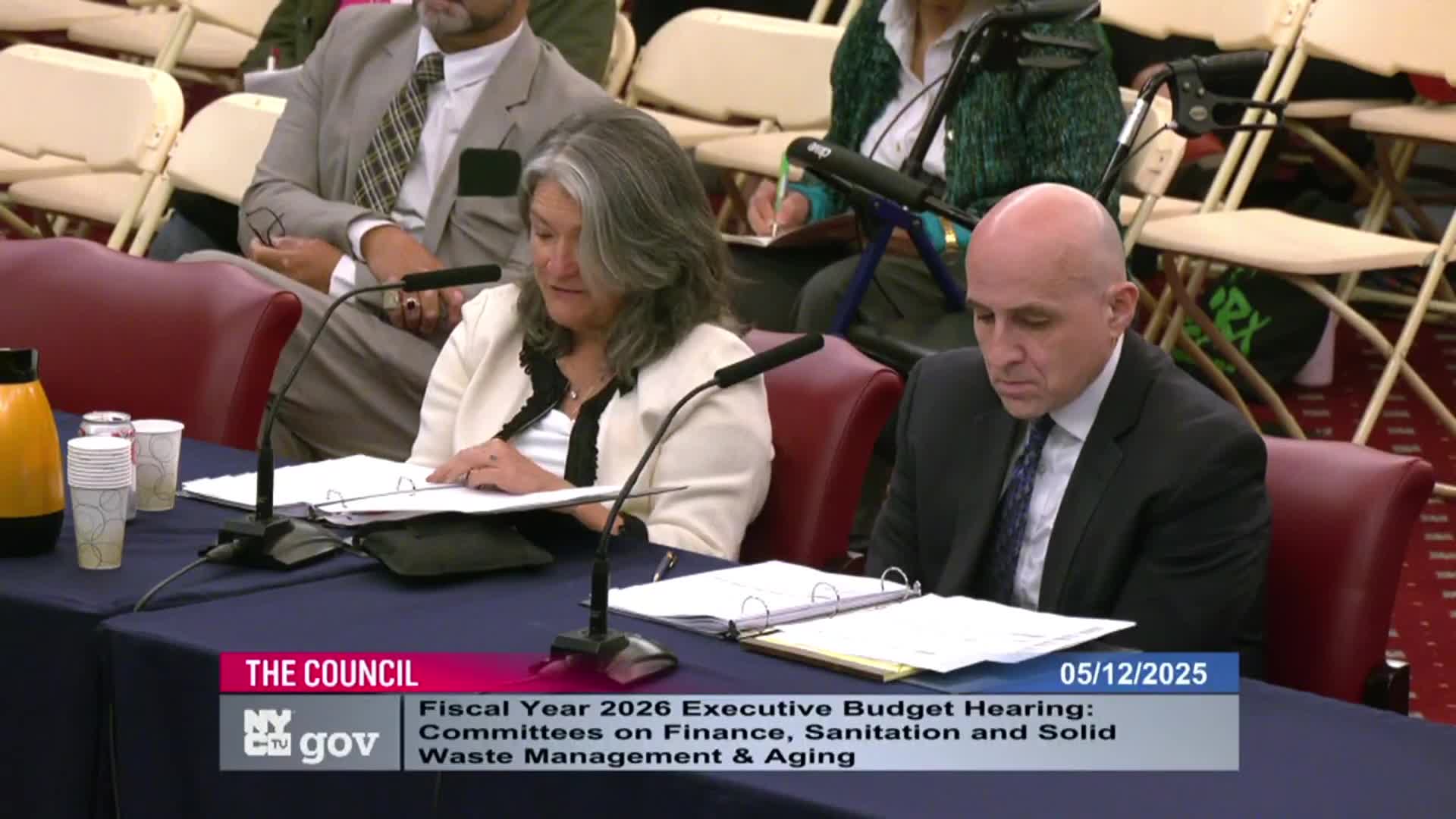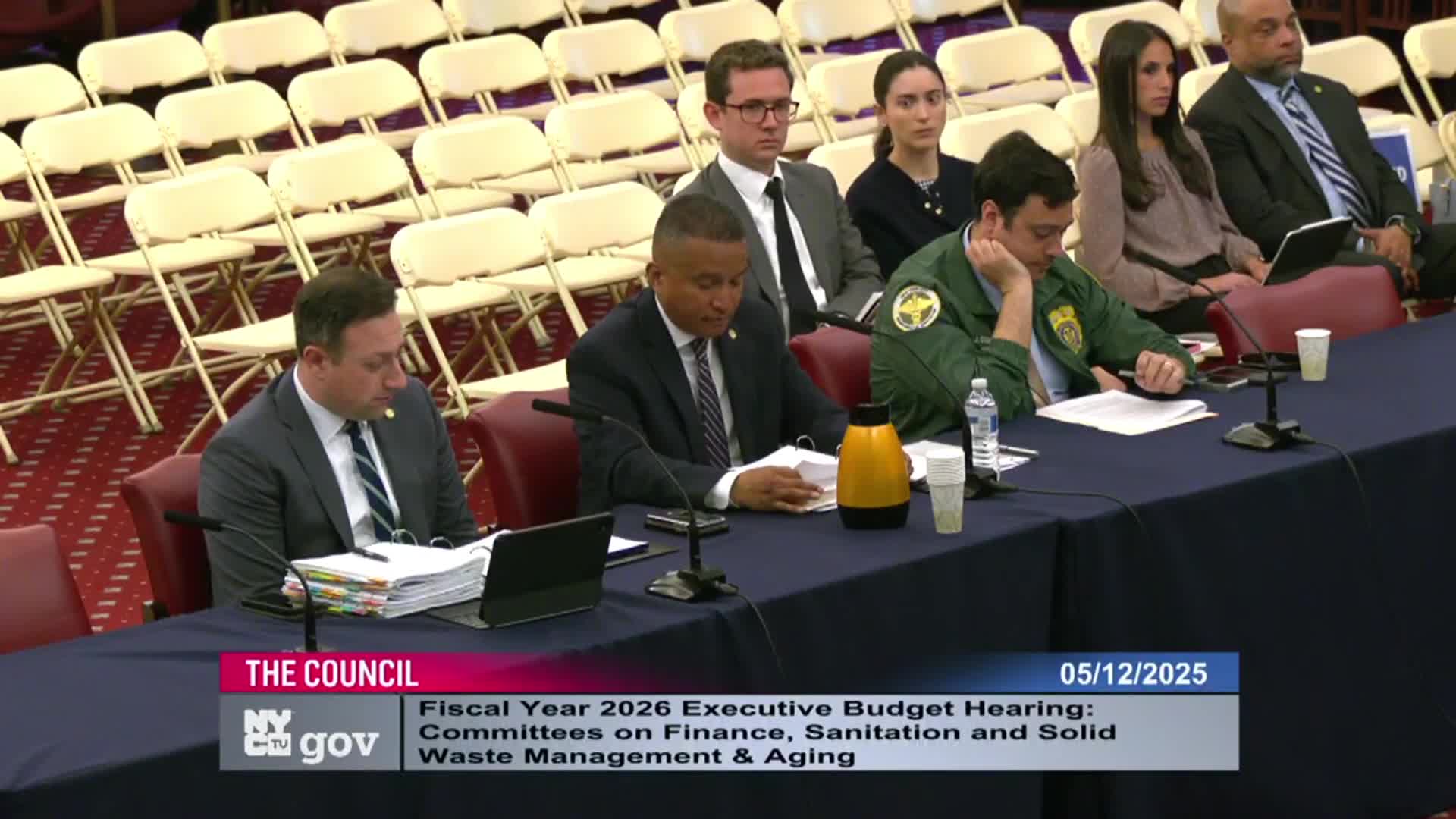Article not found
This article is no longer available. But don't worry—we've gathered other articles that discuss the same topic.

Sanitation budget baselines cleaning services as department pushes containerization and citywide composting

Aging advocates press for expanded meals, case management and capital funding after executive budget restorations

